Uncharted 4: A Thief’s End
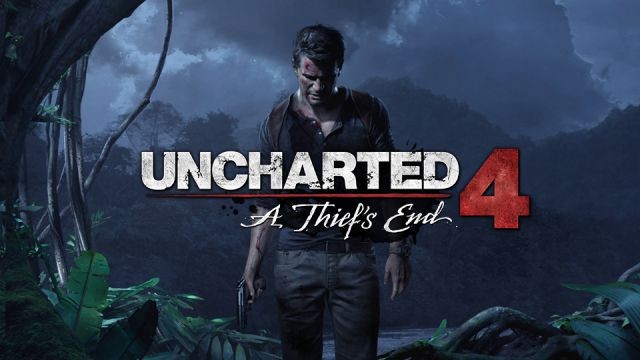
Uncharted 4 is a fitting end for the Uncharted franchise, and a celebration of not only Nathan Drake and his cohorts, but of Naughty Dog themselves. The once-small studio went from making a Mortal Kombat clone to crafting some of the finest experiences on PlayStation consoles in their 20+ year history – from the PS1 to the PS4, and that history is honored here in many ways. Uncharted 4 is as much a celebration of Naughty Dog’s history as it is for the Uncharted franchise’s.
Naughty Dog has brought the dialogue improvements and dramatic tone of Last of Us into this franchise beautifully. Nate has gone from a thrill-seeker to a slightly-domesticated version of himself. He and Elena are married and he’s gone legit – working with a highly-regarded mining company. At a point early in the game, you go to Nate and Elena’s attic and rummage through artifacts from past games. In one of the game’s funniest bits, you find a toy gun and immediately turn your pile of boxes into imaginary cover – showing that Nate still has some fun in him. Nate and Elena’s banter is amazing this time around – and one such instance is evident early on when they have a conversation and he zones out and is left guessing “you were in a ballpark – but a different state!” There’s another part where he bets her on playing her “TV game thing” – and we get a celebration of Naughty Dog’s PS1-era hijinx.
Uncharted has always been about Nate going after treasure, but now it’s about retaining the gold he has in his life – Elena, and keeping his family intact. Nate’s brother Sam makes his real-time debut in the franchise, having been usually seen in flashback form in the narrative. Sully returns as well in more of a sidekick role, as 15 years have passed since Uncharted 3 and he’s content to let the younger Nate and Sam take the reigns in combat most of the time. The group has come together to find Henry Avery’s pirate treasure and spare Sam’s life.
Sam was held in a Colombian prison for 15 years after being shot and left for dead and when he comes back, Nate is overjoyed and worried – because he knows something must be up. His instincts prove correct and it turns out that Sam’s cellmate was a huge drug kingpin who saved his life on one condition – that he get him Avery’s treasure. Nate is torn between wanting to help his brother and also lying to Elena to actually take the mission on – but he does what he feels is right for his family as a whole and agrees.
We meet many side characters along the way and see the differences between Nate and Sam. Sam is definitely more impulsive and volatile than Nate, while Nate usually has to prevent Sam from getting killed due to his impulsive nature. Sully seems to enjoy just being a bystander in their insanity at times, as a surrogate father to Nate and someone that Sam holds in high regard. The chemistry that Nate and Sully have always had is kept intact, and aided by the passage of time because they haven’t seen each other in a while – so they miss each other just as much as the player misses their interaction.
Sam and Nate’s chemistry is a bit different, but still very enjoyable – as is Uncharted’s formula. There’s slightly less of a reliance on “everything explodes and turns into perfectly-usable climbing areas” setpieces and more gunplay. Puzzles take a backseat here as well – so while you will encounter them, they are fewer in number. They also seem quite a bit easier now, which is partially due to the revamped notebook system being so detailed that actually conquering a puzzle is just a matter of trial and error. It’s the most user-friendly game in the series as a result, and prevents the puzzles from hindering progress like they did before.
Of course, melee combat, gunplay, and stealth still play a crucial role in the game as well – and they’re more polished here than in prior entries. Shooting feels more natural with the PS4 pad’s revamped triggers – and is a bit more responsive than it was before. It’s not radically improved, just a bit more refined – and that holds true for the platforming as well. The game’s biggest gains are in storytelling, where the more open Last of Us-style approach to things opens things up from the previously rigid formula set up in past games. Gameplay-wise, the biggest additions are a pick axe for climbing akin to the revamped Tomb Raiders and a rope for swinging – which opens up a new world for combat.
It’s apparently a bit in the campaign, but really shines in multiplayer. There, you’ve got your usual modes to play through – but the game’s redone gameplay works perfectly here. You can be sniped in mid-swing, or kill people from that high perch as well. The rope swing also allows you to swoop in for melee attacks – which are never the best way to go at it in multiplayer matches, but it does give you an advantage if you’re smart about things and pay attention to your environment. The core modes are team deathmatch, a stronghold-style mode, and a treasure-looting mode. Online play is fairly smooth, and there’s a steady sense of progression as well. It’s not enough to make it worth buying the game for on its own, but it is well-crafted and worth checking out.
Visually, Uncharted 4 takes a series that is known for raising the bar and does it even more. It’s the best showcase for environments on the PS4 hardware since PT, with wood grain especially looking gorgeous here. Facial movements are also more organic than prior entries, and you can see that Naughty Dog has learned a lot about evoking emotion in a game from The Last of Us, and it pays dividends here. Before, Uncharted was a game that always wanted to be a movie – now it’s more of a movie than a game in terms of emotion, and it works better.
The franchise’s epic score returns – but this is probably the least-memorable soundtrack the series has had outside of Golden Abyss. Beyond the signature theme song, there isn’t much music that stands out after a play session. Luckily, the voice work remains top-shelf with the cast’s chemistry shining brighter than ever. The characters are more experienced, world-weary, and you can tell all of it with just their voice work. Sully sounds like a content, cool older guy while Nate still has a youthful drawl and Elena clearly loves Nate – but is tired of his lies every now and then. Sam is clearly bitter at the hand life has dealt him, but retains enough hope in his voice that you root for him pretty much all the time. It’s a compelling game, and a lot of that is due to the voice work.
Overall, Uncharted 4 caps off the series with its best-playing entry to date. The storyline is in a way less grandiose than prior games, but feels bigger in scale than those due to the increase in the cast and the better blend of narrative and gameplay elements. Anyone who has loved the series since its inception should buy it immediately – while newcomers should definitely play through the Nathan Drake Collection before getting it, as the plot’s twists and turns mean more if you know the characters and their adventures. Uncharted 4: A Thief’s End is the PS4’s best exclusive to date, and one of the best reasons yet to own the console.
Reviewed By: Jeremy Peeples
Publisher: Sony Interactive Entertainment
Rating: 95%
——————————————————————————–
This review is based on a digital copy of Uncharted 4: A Thief’s End for the PlayStation 4 provided by Sony Interactive Entertainment.
 Game Over Online
Game Over Online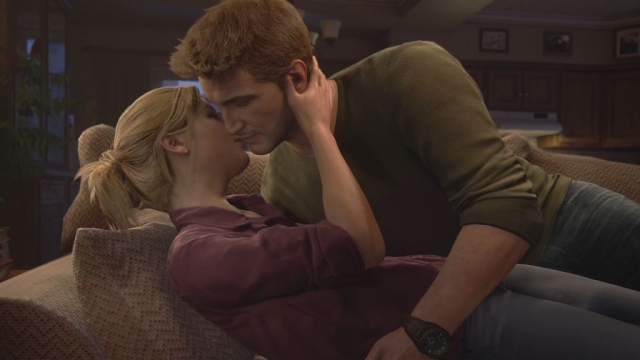
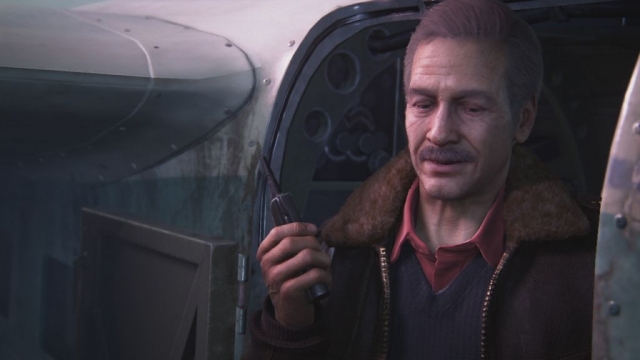
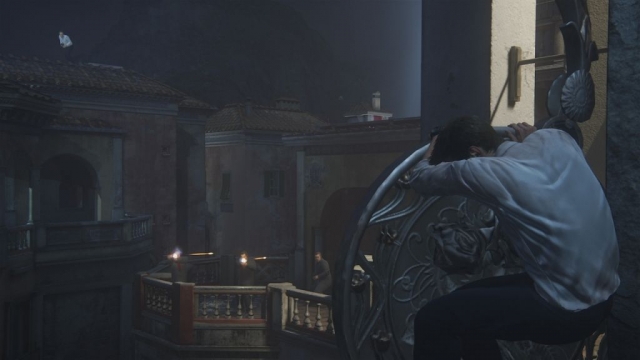
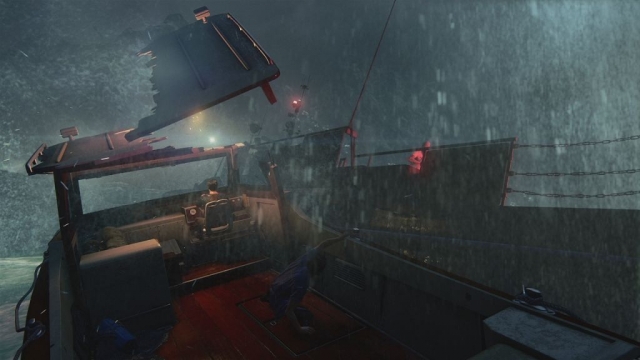










Congrats on the release and all the accolades it is receiving. Well deserved!
I did a good job avoiding spoilers and the like, so I am stoked to pick up my Libertalia Edition when I get out of work.